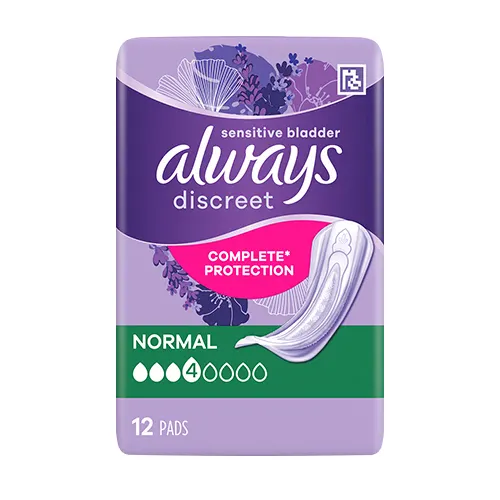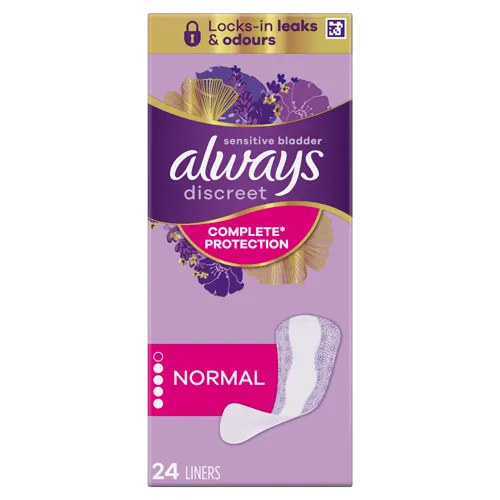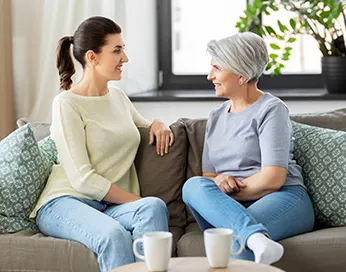
Menopause is the time in a woman’s life when she stops having periods. It is a long, progressive and gradual process which is linked to a reduction in hormone production. The final result is that periods stop. This is called menopause.
What is menopause?
Menopause is the time in a woman’s life when she stops having periods. The average menopause age is around 50, but it can occur between the ages of 48 and 54. It occurs as women gradually lose their ovarian function resulting in a reduction in the production of the female hormones oestrogen and progesterone.Hormone production does not stop suddenly, instead women experience various stages.
What are the common symptoms of menopause?
Some of the main symptoms include:
-
Hot flushes
-
Joint pain
-
Vaginal dryness
-
Loss of libido
-
Night sweats
-
Weight gain, anxiety, persistent insomnia, mood changes, skin flaccidity
-
Stress, irritability, fatigue, dry eyes, bladder weakness, short-term memory loss
-
Itching, loss of self-esteem, depression
Various treatments can help minimise the symptoms of menopause. Firstly, it is necessary to establish your menopause stage and the specific symptoms that you are experiencing. Gynaecologists must determine the best course of treatment, on an individual basis, according to the needs of each woman.
Can I do anything to alleviate symptoms or prevent diseases?
The aim of any menopause treatment must be to prevent complications in the long- and medium-term and alleviate symptoms in the short-term:
-
Medical check-ups will help detect the risk of diseases.
-
Regular visits to your gynaecologist will make it possible to carry out the necessary mammograms and smear tests to prevent complications.
-
Do not smoke. Two years after quitting, the risk of heart attack returns to the average value for the population and the risk of lung cancer is reduced by around a third.
-
Hormone Replacement Therapy (HRT) can help depression. The function of this treatment is to replace the oestrogens (hormones responsible for the female sexual functions) which the ovaries stop producing during menopause. This is only advisable if recommended by a reputable doctor.
Which diseases are most commonly associated with menopause?
Cardiovascular diseases, osteoporosis and breast cancer are the diseases most commonly associated with menopause. In 85% of Spanish women, the deterioration in their quality of life is linked to these diseases.
How can I prevent osteoporosis?
To maintain strong bones, the body is constantly eliminating old bone and replacing it with healthy bone. Their biological makeup means women have a lower maximum bone mass value than men and, with the hormone loss brought on by menopause, they lose more than they replace. It is estimated that between 30 and 50% of women of menopause age have osteoporosis. However, there are many factors that can delay or reduce osteoporosis. Try to take regular moderate physical excercise and maintain a healthy weight.
And what about cholesterol disorders and high blood pressure?
Cholesterol disorders and high blood pressure are often directly linked to cardiovascular diseases. It is therefore necessary to prevent and control cholesterol levels and blood pressure mainly by avoiding fat and salt.
I don’t feel very upbeat, what can I do?
-
Speak to your family about how you feel. It can be helpful to share your concerns and they will be able to understand you much better.
-
If you have children, be aware that although they may be grown up, they still need you. Try not to seem down and help them.
-
Take care of yourself. Stay physically and mentally active.
I have bladder weakness when I laugh, cough or sneeze, what can I do?
The hormonal changes that occur at menopause age can result in a loss of muscle tone and a weakening of the bladder muscles. This is why you may experience light bladder weakness following physical effort, however small. Nowadays, there is a wide variety of absorbent products for bladder weakness to meet the needs of all women. These draw away moisture and neutralise odour.Fortunately, it is possible to strengthen your pelvic muscles by doing some simple exercises that can help alleviate or even eliminate bladder weakness: these are called Kegel exercises.
So what are Kegel exercises?
Kegel exercises were designed to strengthen the pelvic floor muscles. They are very simple excercises that consist of contracting and relaxing the pelvic floor muscles in 5-minute sessions. These exercises help maintain better vaginal, urinary and rectal control. They can be carried out anywhere, at any time of the day and without anyone noticing.
We recommend these three positions:
-
Sitting with your lower back touching the back of the chair with your forearms resting on your thighs.
-
Lying on your back with your hands under your buttocks.
-
Standing with your feet slightly apart.
Contractions:
-
Contract your pelvic floor muscles and hold for 5 seconds.
-
Breathe gently and relax for 5 seconds.
-
Repeat in sets of 10. It is recommended that you do these exercises at least 3 times a day.
To find out if you are doing the exercises correctly, try deliberately stopping the urine flow mid-stream before emptying your bladder. We recommend that you use this technique purely to identify the relevant muscles, and not on a regular basis, as it can cause urinary infection. At the beginning, it is normal not to be able to hold the contraction for 5 seconds or complete the recommended number of repetitions, but every day you will find it easier to manage. After 3 months you will start to notice results. Most women have noticed an improvement in their urinary control one year after starting the programme.
* If you are going through menopause or experiencing bladder leaks, always make sure to consult your doctor or a health specialist for these medical conditions.






